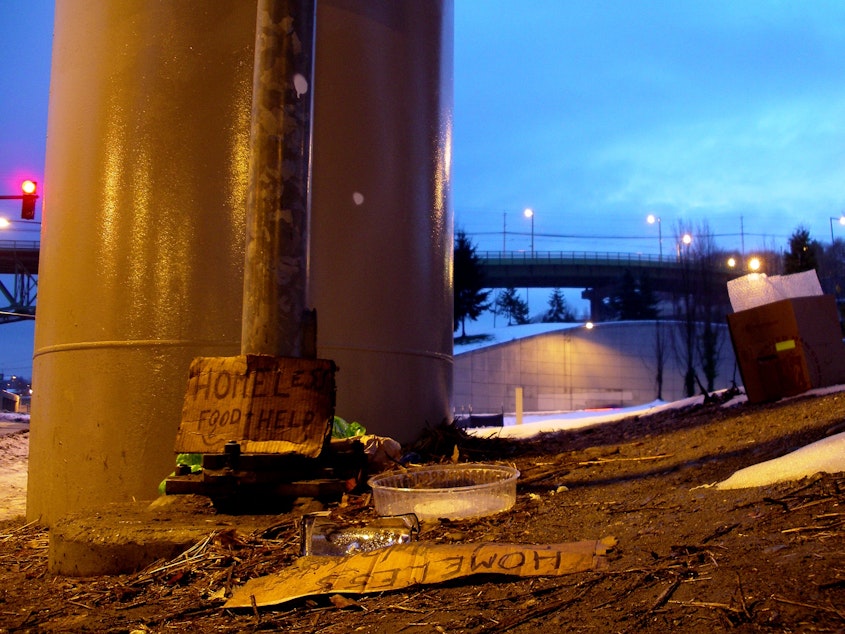Four things to do if you see a stranger in distress

If you see a stranger on the sidewalk who you think might be in trouble — they're yelling or they seem upset, or you don't know if they've passed out — what should you do?
Bill Radke gets advice from Chloe Gale, program director of REACH at Evergreen Treatment Services, and Jacqueline Moulton, who works at Aurora Commons, a community space for under-served populations in North Seattle.
1. Be a good neighbor
When confronted with having to decide whether to step into a situation or not, Gale said to start thinking of the person as your neighbor. Be respectful, ask them if they would like help.
"If they’re clearly distracted by a lot of internal stimuli, they’re hearing a lot of thoughts, they’re maybe seeing things that aren’t right in front of us, then I’m probably going to respond differently," she said.
She takes the assessment step by step: "what’s going on around them, what’s the context, how much stress are they in and how much harm are they in."
Then think about what your capacities are.
2. Check yourself
Moulton cautions against falling into the trap of being the "white savior" — the attitude of feeling like you can save the other person.
"Sometimes our jumping in is harmful or it’s not considering that this person is an agent in their own life, and they’re an expert in their own life and their own situation," Moulton said.
"I make myself have a second where I say what is my bias and what is my prejudice here?"
The flip side is to not take any action out of discomfort.
"That means a loss of engagement on both sides of this fence of difference that we get stuck on," Moulton said.
3. Keep some numbers handy
24-hour crisis line: 866-4-CRISIS
Includes mental health professionals that can be dispatched to a situation.
Community resource line: 211
Not a crisis line, but a good place to ask what is available in your neighborhood.
Emergency: 911
For people who are in imminent harm.
Tip from Moulton: "When calling 911, make it really clear that you’re encountering someone who has something going on with mental illness... so that call gets diverted in a different line."
4. Don't forget the long-term work
Gale: “One of the biggest things you can do is think about how do I support adequate low-income housing and adequate mental health funding.”
Moulton: “We got to get better at relying on one another. In any situation we’re in, be like, ‘We’re in this together.’ And try as hard as we can to get out of this ‘us versus them’ mentality.”
Produced for the web by Kara McDermott.




